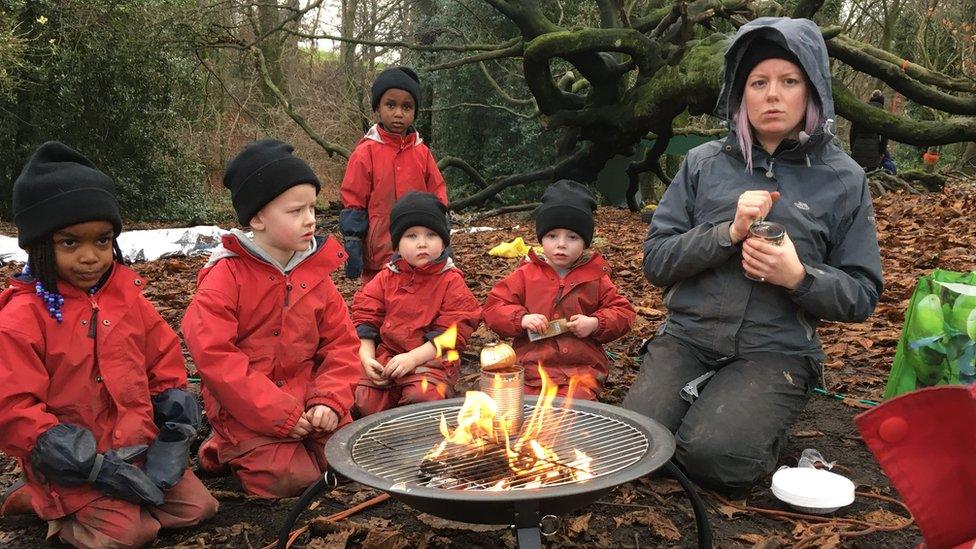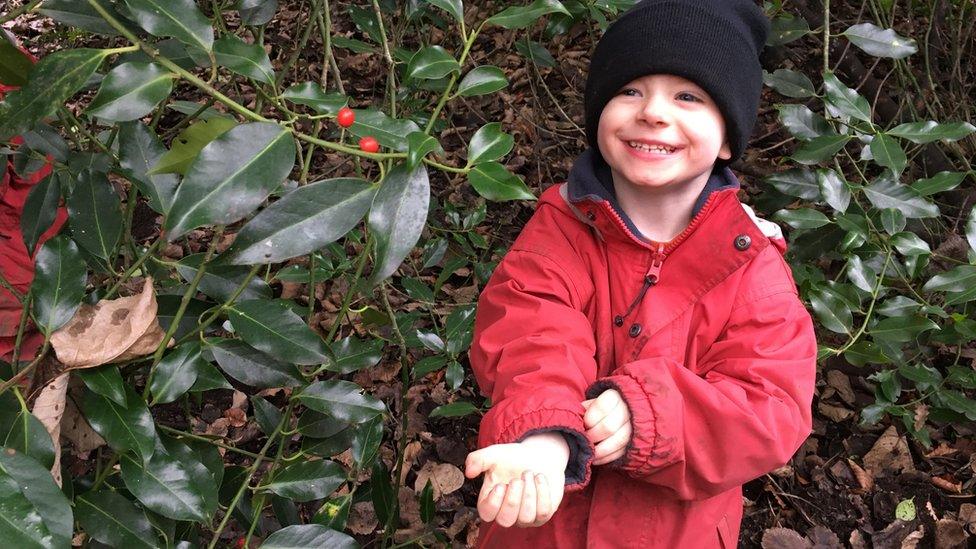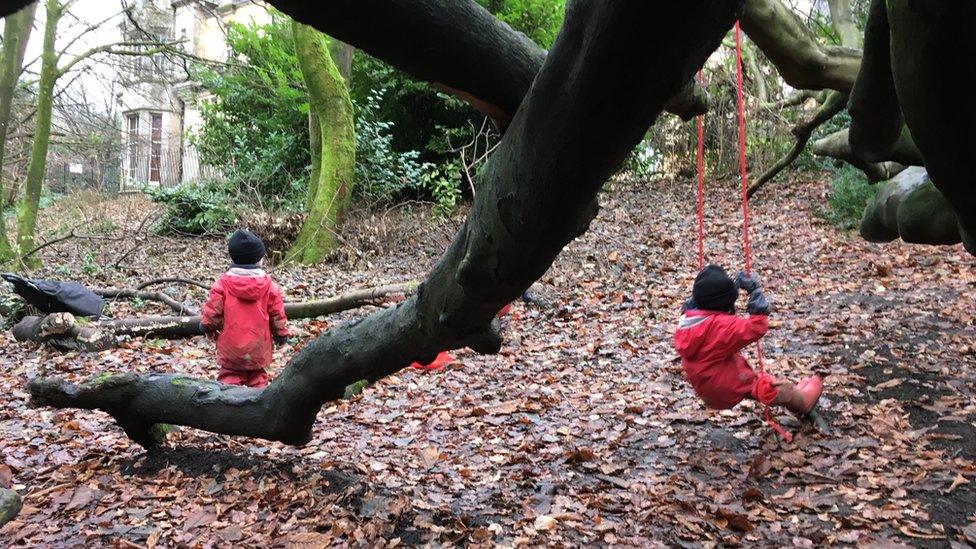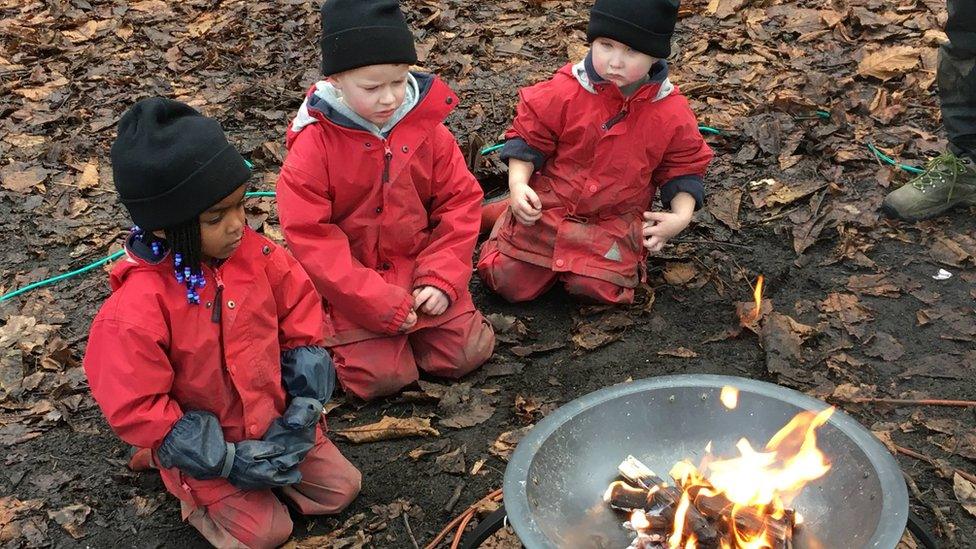The children learning to love being outdoors
- Published

Lauren Devlin, of Parkhead Community Nursery, says the benefits are clear
As the temperatures hover around freezing and we head towards the shortest day of the year, the temptation might be to keep children indoors to avoid the cold and dark.
But one take on nursery education tackles that notion head-on by getting kindergarten-aged children involved in outdoor play for the whole day whatever the weather or time of year.
The charity Thrive Outdoors works with nurseries to help staff become confident and capable of taking children outside to engage in outdoor play.
The philosophy of getting pre-school children out and about and playing in the mud and rain is fairly common in Scandinavia and Germany - and it is catching on in Scotland.
But Rachel Cowper says that in the towns and cities of the Central Belt a combination of factors means a lot of pre-schoolers hardly ever get to play outside beyond the fenced-in confines of nurseries.
"I don't think health and safety is actually the biggest factor," Rachel says.
When she began to work with nurseries she found the main issue was "a lack of confidence".
Rachel says many people were not confident with children playing outdoors because it was not something they had done in their own childhoods.

The confidence of children is boosted by playing outdoors, Lauren Devlin says
For Lauren Devlin, of Parkhead Community Nursery in Glasgow, the benefits are clear.
"The main thing is that their confidence is boosted," she says.
"It relates back to every single thing they do within the nursery. It is giving them great life experience, personal self-help skills and they have fun. That's the best thing."
Elaine McKenna, from The Jeely Piece Club in Castlemilk, says it creates a virtuous circle from children to staff to parents.
"The staff are loving it," she says. "Being outdoors wasn't as restrictive as they thought. They are actually finding it easier to work outdoors. They are confident enough to take that to other staff and to parents as well."
Elaine adds: "Parents are coming out on sessions which is giving them increased confidence to go and do stuff with children at the weekend or at holiday time."
Parent Joanna Thompson, whose daughter is three, says playing outside is "character-building".
She says she does not want to wrap her child in cotton wool but she knows parents who do.

Another parent, Sean Kennedy, agrees.
"My wife is under the impression that they need to be wrapped in cotton wool and they are not allowed to go out and explore for themselves," he says.
"We make the rules for them, whereas out here they make their own rules up. Kids risk assess every minute of the day. You see them doing it all the time."

Rachel Cowper says controlled risk is the key.
She says enabling children to experience little challenges and triumphs when they are three or four is great for their confidence.
"Enable them to climb that tree a bit further and feel that level of success," she says.
"But also when they are that young, if they do something and fail they are more apt to try it again."
Rachel says it starts to build a sense of resilience which is a key factor in tackling childhood and adolescent mental health issues.
"Enabling children in these formative years to try to test, to indulge in elements of risky play, is a real base point for a lot of learning," she says.